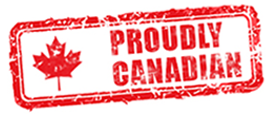Google Updates Search Spam Policies with Enhanced Site Reputation Guidelines
Google has recently revised its web search spam policies to implement stricter guidelines aimed at curbing abuse related to site reputation and other manipulative tactics. This update introduces more comprehensive definitions and illustrative examples to better clarify what constitutes spam practices, making it easier for webmasters and SEOs to understand the boundaries. One of the key changes is the addition of the "close oversight or involvement" clause, which targets websites that utilize third-party services to artificially enhance their rankings. This clause holds site owners accountable even if they are indirectly involved in such manipulative tactics through third-party intermediaries. Other notable updates address issues such as link spam, the generation of automated traffic through bots, and the presence of low-quality affiliate content, often referred to as "thin affiliate pages." Google emphasized that these updates are part of a continuous effort to regularly evaluate and refine its policies, with the broader goal of maintaining the quality of content and transparency in its search results. By tightening these guidelines, Google aims to further safeguard the search ecosystem from deceptive practices and ensure users are provided with more reliable and valuable information.







